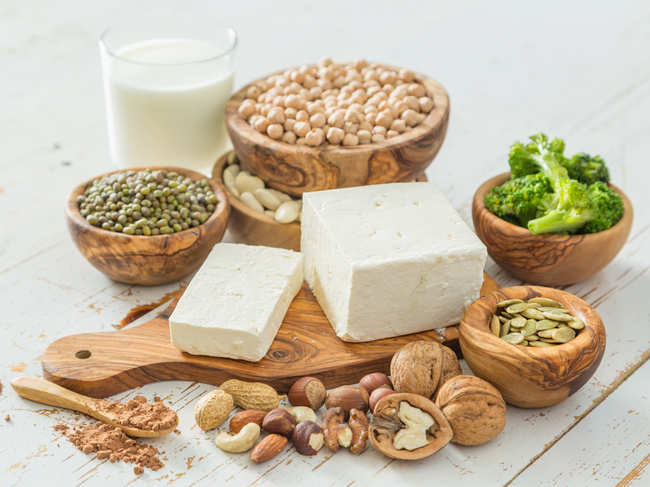 Getty Images
Getty ImagesBone density is important for overall health. Osteoporosis develops when bone density decreases. The body reabsorbs more bone tissue and produces less to replace it. The condition tends to creep up on people undetected. Most people don't realise they have seriously low bone density until they've had their first fracture. That's why osteoporosis is sometimes referred to as the "silent disease".
With age, people tend to lose bone mass and this is especially seen in post-menopausal women. Osteoporosis is often considered a woman's disease, but older men are also affected by bone-thinning condition. Around 1 in 3 women and 1 in 5 men over 50 years of age experience bone fractures due to osteoporosis. This is why specialists have taken a particular interest in identifying all modifiable risk factors for bone loss.
Osteoporotic bones become porous and weaker, increasing the risk of fractures, especially around the hip, spine and wrists. Though osteoporosis is natural, age-related and hormone-related, there are things we can do to prevent this.
- Finding strategies that may optimise bone health in pre- and post-menopausal women is a priority. Researchers have shown that a lower rate of hip bone loss, in particular, contributed to around 39% of the reduction in mortality. This should encourage people with osteoporosis or at risk of a fracture to seek treatment - and commit to taking it.
- Calcium is the primary nutrient for bone health. The best way to absorb calcium is to consume small amounts throughout the day, rather than eating one high-calcium meal per day. It's no surprise that the superstar of foods for osteoporosis is milk and milk products. Go for low-fat or skim milk. Vitamin K-2 plays an essential role in bone health by reducing calcium loss and helping minerals bind to the bones. Vegetables are low in calories and provide vitamins, minerals and fibers that are good for bones. One study showed that vitamin C may help protect bones from damage. Eating yellow and green vegetables can benefit most people. Research findings suggest that a high-quality, anti-inflammatory diet - which is typically rich in fruit, vegetables, fish, whole grains, and nuts - may be especially important for younger women and may reduce bone loss in some women.
- A healthy weight is essential for bone density - people who are underweight have a higher risk of developing bone disease, while excess body weight puts additional stress on the bones.
- Dieting and weight reduction programmes that encourage very low calorie diets can lead to bone density loss. Any diet should include a balance of protein, fats, vitamins and minerals.
- Studies also indicate that omega-3 fatty acids play a role in maintaining bone density. Omega-3 fatty acids are present in a variety of foods such as salmon, mackerel, nuts and seeds.
- Magnesium and Zinc both are necessary in bone metabolism. Foods rich in magnesium and zinc include nuts, legumes, seeds and whole grains. Almonds support bone health in multiple ways. As with some other nuts and seeds, almonds are chock-full of calcium, magnesium and protein.
- Both weight-lifting and strength training will promote new bone growth and maintain the bone structure.
- Psychosocial stress may increase fracture risk through degradation of bone mineral density. Bone degradation happens through dysregulation of hormone secretion, including cortisol, thyroid hormones, growth hormone, and glucocorticoids. This supports community-building social stress interventions in postmenopausal women to potentially limit bone loss.
- Do not smoke, and consume alcohol only in moderation. Chronic, heavy drinking can lead to osteoporosis.
(The author is Consultant - Orthopaedic Surgeon at BGS Gleneagles Global Hospital, Bangalore)










 Get Unlimited Access to The Economic Times
Get Unlimited Access to The Economic Times
